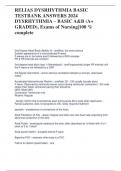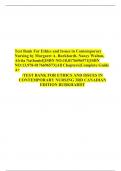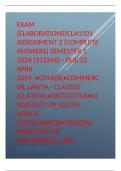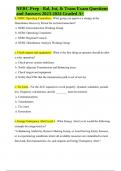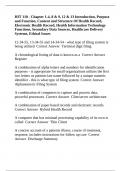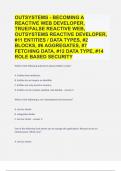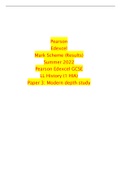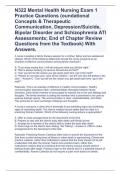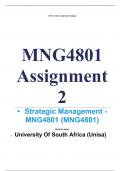Exam (elaborations)
RELIAS DYSRHYTHMIA BASIC TESTBANK ANSWERS 2024 DYSRHYTHMIA – BASIC A&B (A+ GRADED), Exams of Nursing|100 % complete 2nd Degree Heart Block (Mobitz II) - ansRare, but more serious Sudden appearance of a nonconducted P-wave P-waves are nl, but some a
- Institution
- RELIAS DYSRHYTHMIA BASIC TESTBANK ANSWERS 2024 D
RELIAS DYSRHYTHMIA BASIC TESTBANK ANSWERS 2024 DYSRHYTHMIA – BASIC A&B (A+ GRADED), Exams of Nursing|100 % complete 2nd Degree Heart Block (Mobitz II) - ansRare, but more serious Sudden appearance of a nonconducted P-wave P-waves are nl, but some aren't followed by a QRS complex P...
[Show more]
